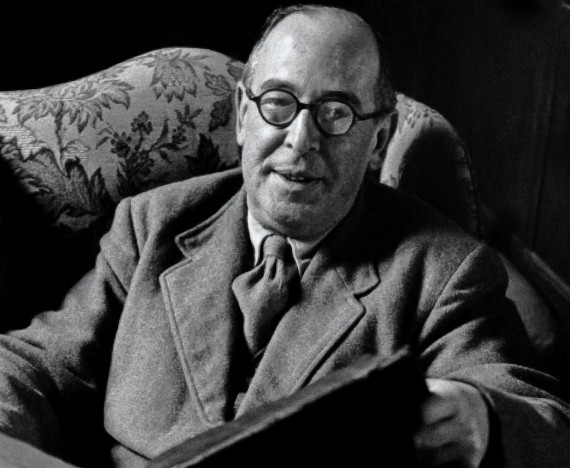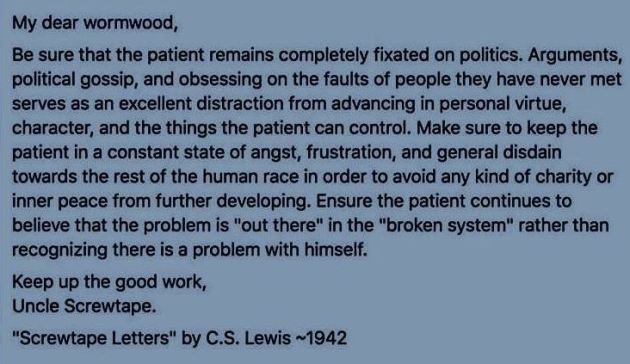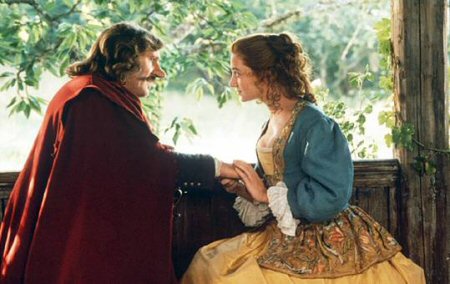November 22nd marks the fiftieth anniversary of the passing of one of the great figures in history. No, I’m not talking about a U.S. president. I’m referring to one of the other two noted men, both authors, who passed away that day: Clive Staples Lewis, or Jack as his friends and family called him.
On November 22, 1963, at 2:30 pm central time, John F. Kennedy was assassinated in Dallas. An hour earlier, across the Atlantic, C.S. Lewis had died at his home in Oxford. A few short hours later, in Los Angeles, the English writer Aldous Huxley, author of the dystopian classic Brave New World, would also die. This strange and somewhat morbid coincidence would later inspire Peter Kreeft to write Between Heaven and Hell: A Dialog Somewhere Beyond Death with John F. Kennedy, C.S. Lewis, and Aldous Huxley.
The media coverage of Kennedy’s assassination totally eclipsed the deaths of Lewis and Huxley, whose passing went almost entirely unnoticed at the time, much as, many years later, the passing of Mother Teresa would go largely unnoticed in the wake of the death of Princess Diana. (Source: The Catholic World Report)
Over the past fifteen years I have quietly collected quite a few of Lewis’ books, enough so that it surprised me last night when I walked throughout my house collecting them from various shelves and piles in order to take the photo below. There are a few missing that are either on loan to someone or buried at the bottom of a pile that I missed. I even own two versions of the movie Shadowlands: both the Hollywood version with Sir Anthony Hopkins and Debra Winger, and the BBC version with Joss Ackland and Claire Bloom. And of course there are the recent spate of Narnia films. I truly had no idea I’d collected so many Lewis-related works.
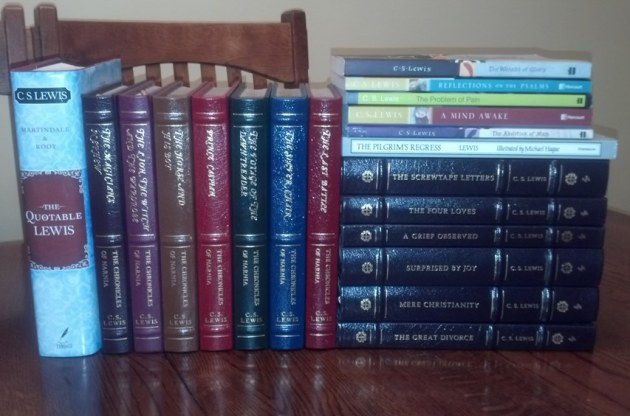
Jack was a member of the Inklings, a literary-minded group of friends who would gather at The Eagle and Child (affectionately called the Bird and Baby) whose members included Lewis, J.R.R. Tolkien, Owen Barfield, Charles Williams and Hugo Dyson. Were I allowed to visit the past as a fly on the wall I would want to be sitting at a table near this group, smoking a good cigar or pipe, quaffing an ale, and eavesdropping. One of my favorite books is Tolkien and C.S. Lewis: The Gift of Friendship.
Born in Belfast, a soldier in WWI, convert from atheism to Christianity, professor at Oxford, and finally a prolific author. His was indeed a life that was full and well lived.
I own only two books that are encyclopedias of quotes by a singular person. The Quotable Lewis and The Quotable Chesterton. Outside of the collected letters of Flannery O’Connor (The Habit of Being) or The Letters of J.R.R. Tolkien I have yet to find any compendiums of authors’ quotes worthy of my shelves. Snobbish, perhaps, but it holds true for me.
I read recently where someone said that there is nothing new to be written because Lewis wrote it all already. As I put together a list of favorite quotes for this blog I found it hard to disagree. From his books, lectures, sermons or even small papers, Lewis covered a vast array of subjects that hold weight and are relevant to our lives. I cannot pick a favorite book to mark the fiftieth anniversary of his passing, perhaps Mere Christianity or The Screwtape Letters. I simply love each and every one of them. I’ve strained to limit myself to thirty of my favorite quotes listed below. I hope you take the time to enjoy them and let them stew awhile in your mind or heart. They are not meant to be rushed, but savored like a good cigar or a glass of port.
Here’s to you, Jack.
[PS: Do you have a favorite Lewis quote or book? Please share it in the comments. I’d love to hear yours.]
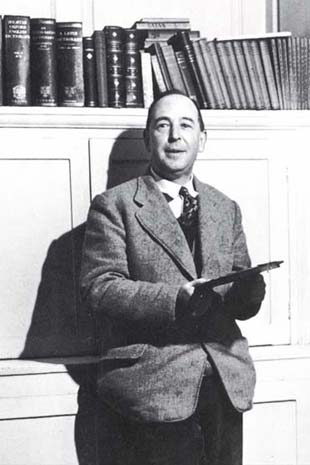
— 1 —
We—or at least I—shall not be able to adore God on the highest occasions if we have learned no habit of doing so on the lowest. At best, our faith and reason will tell us that He is adorable, but we shall not have found Him so, not have “tasted and seen.” Any patch of sunlight in a wood will show you something about the sun which you could never get from reading books on astronomy. These pure and spontaneous pleasures are “patches of Godlight” in the woods of our experience. – Letters to Malcolm
— 2 —
When I was ten, I read fairy tales in secret and would have been ashamed if I had been found doing so. Now that I am fifty, I read them openly. When I became a man I put away childish things, including the fear of childishness and the desire to be very grown up. – Of Other Worlds: Essays and Stories
— 3 —
We never have followed the advice of the great teachers. Why are we likely to begin now? Why are we more likely to follow Christ than any of the others? Because He is the best moral teacher? But that makes it even less likely that we shall follow Him. If we cannot take the elementary lessons, it is likely we are going to take the most advanced one? If Christianity only means one more bit of good advice, then Christianity is of no importance. There has been no lack of good advice for the last four thousand years. A bit more makes no difference. – Mere Christianity
— 4 —
With the cruelty of youth I allowed myself to be irritated by traits in my father which, in other elderly men, I have since regarded as lovable foibles. – Surprised by Joy
— 5 —
When allegory is at its best, it approaches myth, which must be grasped with the imagination, not with the intellect. – The Pilgrim’s Regress
— 6 —
You never know how much you really believe anything until its truth or falsehood becomes a matter of life and death to you. It is easy to say you believe a rope to be strong and sound as long as you are merely using it to cord a box. But suppose you had to hang by that rope over a precipice. Wouldn’t you then first discover how much you really trusted it? . . . Only a real risk tests the reality of a belief. – A Grief Observed
— 7 —
Man has held three views of his body. First there is that of those ascetic Pagans who called it the prison or the “tomb” of the soul, and of Christians like Fisher to whom it was a “sack of dung,” food for worms, filthy, shameful, a source of nothing but temptation to bad men and humiliation to good ones. Then there are the Neo-Pagans (they seldom know Greek), the nudists and the sufferers from Dark Gods, to whom the body is glorious. But thirdly we have the view which St. Francis expressed by calling his body “Brother Ass.” All three may be—I am not sure—defensible; but give me St. Francis for my money.
Ass is exquisitely right because no one in his senses can either revere or hate a donkey. It is a useful, sturdy, lazy, obstinate, patient, lovable and infuriating beast; deserving now the stick and now a carrot; both pathetically and absurdly beautiful. So the body. There’s no living with it till we recognize that one of its functions in our lives is to play the part of buffoon. – The Four Loves
— 8 —
I can’t imagine a man really enjoying a book and reading it only once. – The Letters of C.S. Lewis to Arthur Greeves
— 9 —
I live in the Managerial Age, in a world of “Admin.” The greatest evil is not now done in those sordid “dens of crime” that Dickens loved to paint. It is not done even in concentration camps and labour camps. In those we see its final result. But it is conceived and ordered (moved, seconded, carried, and minuted) in clean, carpeted, warmed, and well-lighted offices, by quiet men with white collars and cut fingernails and smooth-shaven cheeks who do not need to raise their voice. Hence, naturally enough, my symbol for Hell is something like the bureaucracy of a police state or the offices of a thoroughly nasty business concern. – The Screwtape Letters
— 10 —
My father bought all the books he read and never got rid of any of them. There were books in the study, books in the drawing room, books in the cloakroom, books (two deep) in the great bookcase on the landing, books in a bedroom, books piled as high as my shoulder in the cistern attic, books of all kinds reflecting every transient stage of my parents’ interest, books readable and unreadable, books suitable for a child and books most emphatically not. Nothing was forbidden me. In the seemingly endless rainy afternoons I took volume after volume from the shelves. I had always the same certainty of finding a book that was new to me as a man who walks into a field has of finding a new blade of grass. – Surprised by Joy
— 11 —
“Putting on Christ” . . . is not one among many jobs a Christian has to do; and it is not a sort of special exercise for the top class. It is the whole of Christianity. Christianity offers nothing else at all. – Mere Christianity
— 12 —
The decline of “religion” is no doubt a bad thing for the “World.” By it all the things that made England a fairly happy country are, I suppose, endangered: the comparative purity of her public life, the comparative humanity of her police, and the possibility of some mutual respect and kindness between political opponents. But I am not clear that it makes conversions to Christianity rarer or more difficult: rather the reverse. It makes the choice more unescapable. When the Round Table is broken every man must follow either Galahad or Mordred: middle things are gone. – God in the Dock
— 13 —
He [St. Paul] told us to be not only “as harmless as doves,” but also “as wise as serpents.” He [Christ] wants a child’s heart, but a grown-up’s head. – Mere Christianity
— 14 —
I believe in Christianity as I believe that the sun has risen: not only because I see it, but because by it I see everything else. – The Weight of Glory
— 15 —
It is easy to think that the Church has a lot of different objects—education, building, missions, holding services. … The Church exists for nothing else but to draw men into Christ, to make them little Christs. If they are not doing that, all the cathedrals, clergy, missions, sermons, even the Bible itself, are simply a waste of time. God became Man for no other purpose. – Mere Christianity
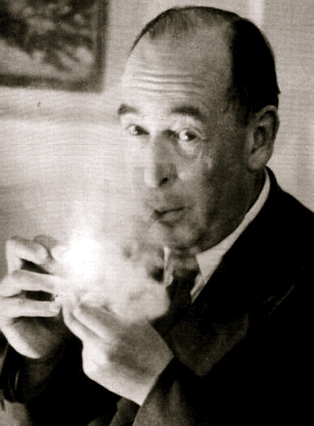
— 16 —
Those who are enjoying something, or suffering something together, are companions. Those who enjoy or suffer one another, are not. – That Hideous Strength
— 17 —
Courage is not simply one of the virtues, but the form of every virtue at the testing point, which means, at the point of highest reality. A chastity or honesty or mercy which yields to danger will be chaste or honest or merciful only on conditions. Pilate was merciful till it became risky. – The Screwtape Letters
— 18 —
Isn’t it funny the way some combinations of words can give you—almost apart from their meaning—a thrill like music? – The Letters of C.S. Lewis to Arthur Greeves
— 19 —
And out of that hopeless attempt has come nearly all that we call human history—money, poverty, ambition, war, prostitution, classes, empires, slavery—the long terrible story of man trying to find something other than God which will make him happy. – Mere Christianity
— 20 —
Friendship is born at that moment when one person says to another: “What! You too? I thought that no one but myself . . .” – The Four Loves
— 21 —
To love at all is to be vulnerable. Love anything and your heart will be wrung and possibly broken. If you want to make sure of keeping it intact you must give it to no one, not even an animal. Wrap it carefully round with hobbies and little luxuries; avoid all entanglements. Lock it up safe in the casket or coffin of your selfishness. But in that casket, safe, dark, motionless, airless, it will change. It will not be broken; it will become unbreakable, impenetrable, irredeemable. To love is to be vulnerable. – The Four Loves
— 22 —
A man can no more diminish God’s glory by refusing to worship Him than a lunatic can put out the sun by scribbling the word ‘darkness’ on the walls of his cell. – The Problem of Pain
— 23 —
I am trying here to prevent anyone saying the really foolish thing that people often say about Him: I’m ready to accept Jesus as a great moral teacher, but I don’t accept his claim to be God. That is the one thing we must not say. A man who was merely a man and said the sort of things Jesus said would not be a great moral teacher. He would either be a lunatic — on the level with the man who says he is a poached egg — or else he would be the Devil of Hell. You must make your choice. Either this man was, and is, the Son of God, or else a madman or something worse. You can shut him up for a fool, you can spit at him and kill him as a demon or you can fall at his feet and call him Lord and God, but let us not come with any patronizing nonsense about his being a great human teacher. He has not left that open to us. He did not intend to. – Mere Christianity
— 24 —
I didn’t go to religion to make me happy. I always knew a bottle of Port would do that. If you want a religion to make you feel really comfortable, I certainly don’t recommend Christianity. – God In The Dock
— 25 —
The books or the music in which we thought the beauty was located will betray us if we trust to them; it was not in them, it only came through them, and what came through them was longing. These things—the beauty, the memory of our own past—are good images of what we really desire; but if they are mistaken for the thing itself they turn into dumb idols, breaking the hearts of their worshippers. For they are not the thing itself; they are only the scent of a flower we have not found, the echo of a tune we have not heard, news from a country we have never yet visited. – The Weight of Glory
— 26 —
There are only two kinds of people in the end: those who say to God, “Thy will be done,” and those to whom God says, in the end, “Thy will be done.” All that are in Hell, choose it. Without that self-choice there could be no Hell. No soul that seriously and constantly desires joy will ever miss it. Those who seek find. Those who knock it is opened. – The Great Divorce
— 27 —
And all the time — such is the tragi-comedy of our situation — we continue to clamor for those very qualities we are rendering impossible. You can hardly open a periodical without coming across the statement that what our civilization needs is more “drive”, or dynamism, or self-sacrifice, or “creativity”. In a sort of ghastly simplicity we remove the organ and demand the function. We make men without chests and expect of them virtue and enterprise. We laugh at honour and are shocked to find traitors in our midst. We castrate and bid the geldings be fruitful. – The Abolition of Man
— 28 —
To be a Christian means to forgive the inexcusable, because God has forgiven the inexcusable in you. –Essays on Forgiveness
— 29 —
We live, in fact, in a world starved for solitude, silence, and private: and therefore starved for meditation and true friendship. – The Weight of Glory
— 30 —
It would seem that Our Lord finds our desires not too strong, but too weak. We are half-hearted creatures, fooling about with drink and sex and ambition when infinite joy is offered us, like an ignorant child who wants to go on making mud pies in a slum because he cannot imagine what is meant by the offer of a holiday at the sea. We are far too easily pleased. – The Weight of Glory
